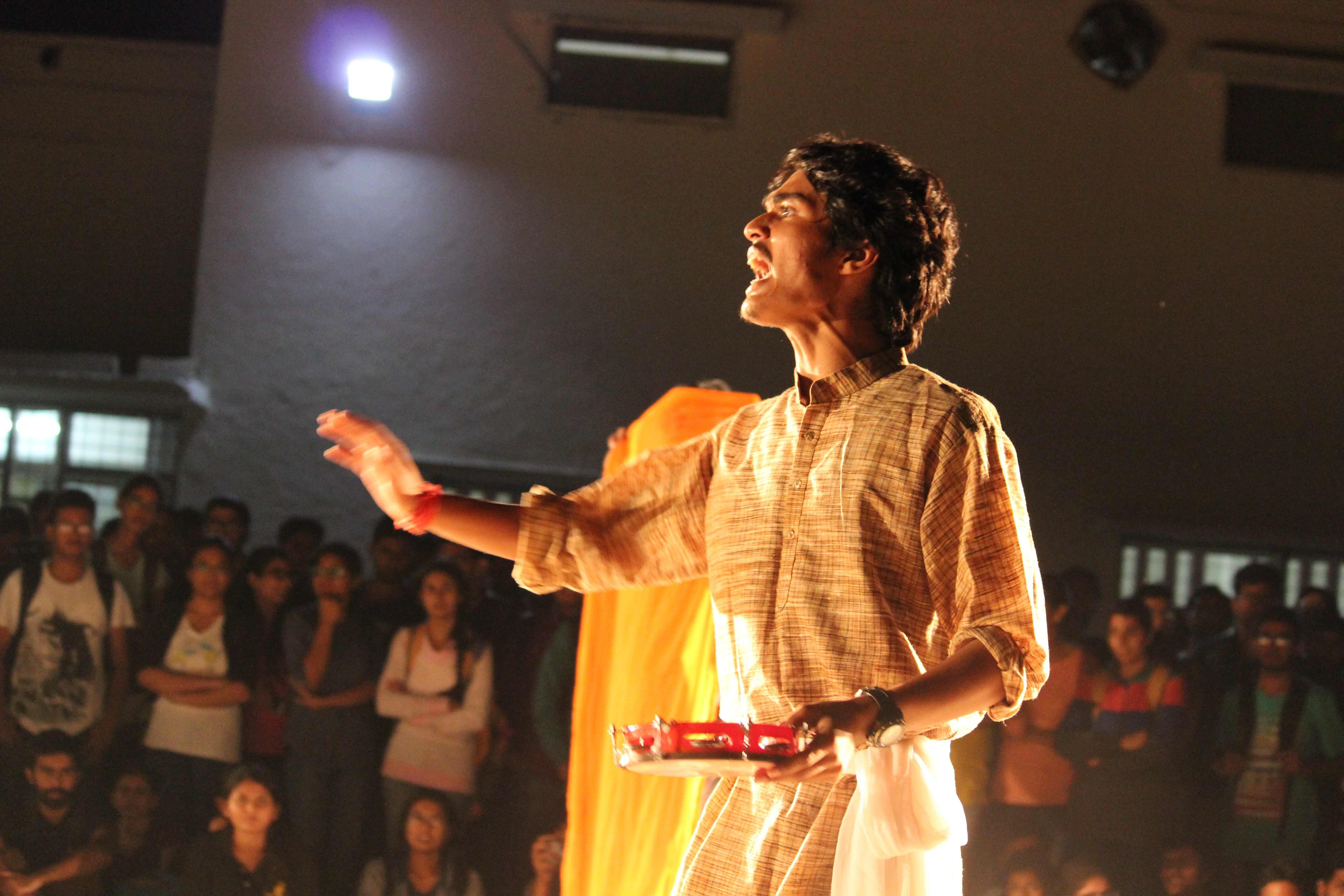

Body of IITR

On the first day of Thomso’15, The Entrepreneurial Development Cell (EDC) organised ‘Venture Unplugged’, a panel discussion with the who’s who of the entrepreneurial world. The MAC auditorium was packed to the rafters, abuzz with excitement and anticipation. The audience primarily consisted of self-providing enthusiasts who themselves aspired to venture into business in later part of their life and were delighted to see these dignitaries on the stage.
With 30 long years of exposure to the corporate world and an illustrious career in entrepreneurship, Pramod Saxena, the founder of OxigenUSA moderated the discussion. He started off with a vivid analogy likening entrepreneurship to a game of boxing. One doesn’t fail on falling, but only on not getting up again.
The first speaker Mohit Saxena co-founded InMobi in 2006 and is the current CTO of the firm. He narrated his success story which demonstrated what a rocky ride entrepreneurship is. He recollected the scarcity of funds he faced after returning to India. Eventually he did acquire the patronage, but the beneficiary insisted that they start the mobile ad network from India and that made all the difference to their story. This way entrepreneurship requires pivoting around the original blueprint and hence planning is an iterative process.
Another major challenge that entrepreneurs face is the eternal race against time. Faster the execution, better the expectancy of success. He also highlighted the fact that hurdles and socio-economic slowdowns are not something to be cribbed upon, but to be looked at as opportunities for better performance. You just need to identify the problem and get cracking at it.
Arvind Singhal, who is the Chairman of Technopack Advisors, which he himself founded in 2006, stressed upon the need of getting up and acting. Even for him things took an ugly turn when he got fired, back in the 90s. But this adversity made him take the necessary plunge to start his own consultancy firm, where he is holding the aces today. He argued that it is very difficult to break free so long as you are in a very comfortable position with a regular salary. The time when he quit, to the time he started his venture, for him, was the period of self-discovery. He realised his worth when the same firm which fired him was ready to hire him back at 8 times the original salary.
The panel then called attention to the mostly-unavoidable evil, failure. They acknowledged that nothing prepares you for the advent more than the bitter taste of failure. It develops in you the resilience for acting and thinking clearly in the most shocking situations. Something that life teaches us the hard way.
Saurabh Kocchar, currently is the CEO of the mobile food delivery giant Foodpanda, had the crowd in fits with his hilarious rendition. He quit McKinsey when he realised that they weren’t paying him the money in a year, they made through him in just a day. He then one day entered the stock trading market and was surprised at his own dexterity. It was plain sailing until the market crashed one Friday evening and he lost 80% of his assets. Albeit muddled with afflictions, he found that ‘one drive that would sail him through’. It was after this catastrophe that he established Printvenue and co-founded Foodpanda. Gleeful of the new path, he compared this career with the job of a consultant at Mckinsey, which he recounts he never relished doing.
From the discussion it could be quite avidly inferred that the basic necessity of an entrepreneurial pursuit is to be clear of the problem at hand. It is only when one dwells into the intricacies of the problem, one will be able to work out a solution. Most fortune hunters spend their lives dreaming someone else’s dreams. They need to believe in the ideas of their own genesis.
As the session neared its end, the debate was thrown open to the audience and questions were invited. The highlight of the evening was Mohit Saxena’s witty reply when asked how he’d justify going against the Japanese saying ‘do it right the first time’ with their ideology of initiate, pivot and change. As he rightly said, the best products and services in the world aren’t Japanese anymore. This is the age of disruption and the competition is so fierce that keeping the business front flexible is fundamental for a successful venture.
The final remarks were made by Sonesh Jain from the crowd. A 2014 graduate of R and a co-founder of Audegn Innovation Labs, he recited his own journey and cautioned the future entrepreneurs against haste of scaling up. The size of the industry is the needle of a sensitive balance. Scaling them beyond the optimum level could end up defeating the whole purpose of the initiative. On the contrary, one should be ‘married to the game’.
This discussion on Day1 of Thomso set the bar quite high, only to watch it fall flat, as all the other interactive sessions opened to a half empty auditorium at best.
WatchOut lauds EDC and Thomso’15 on the meticulous organization, and hopes this turns to be a regular addition to their calendars.